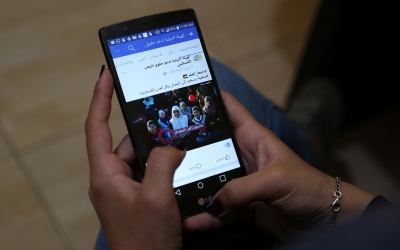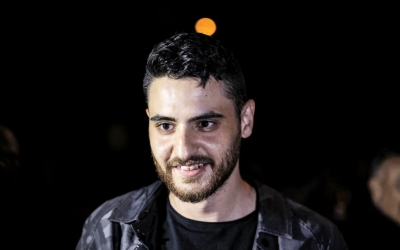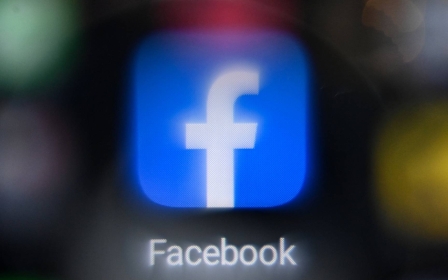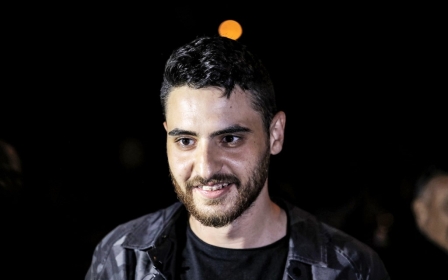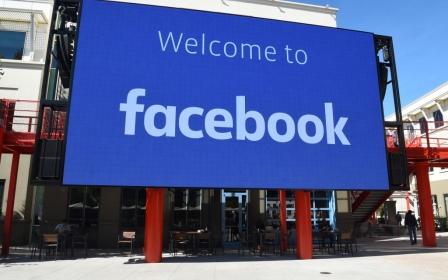'Facebook Censors Jerusalem': Campaign protests Meta's alleged censorship of Palestinian posts
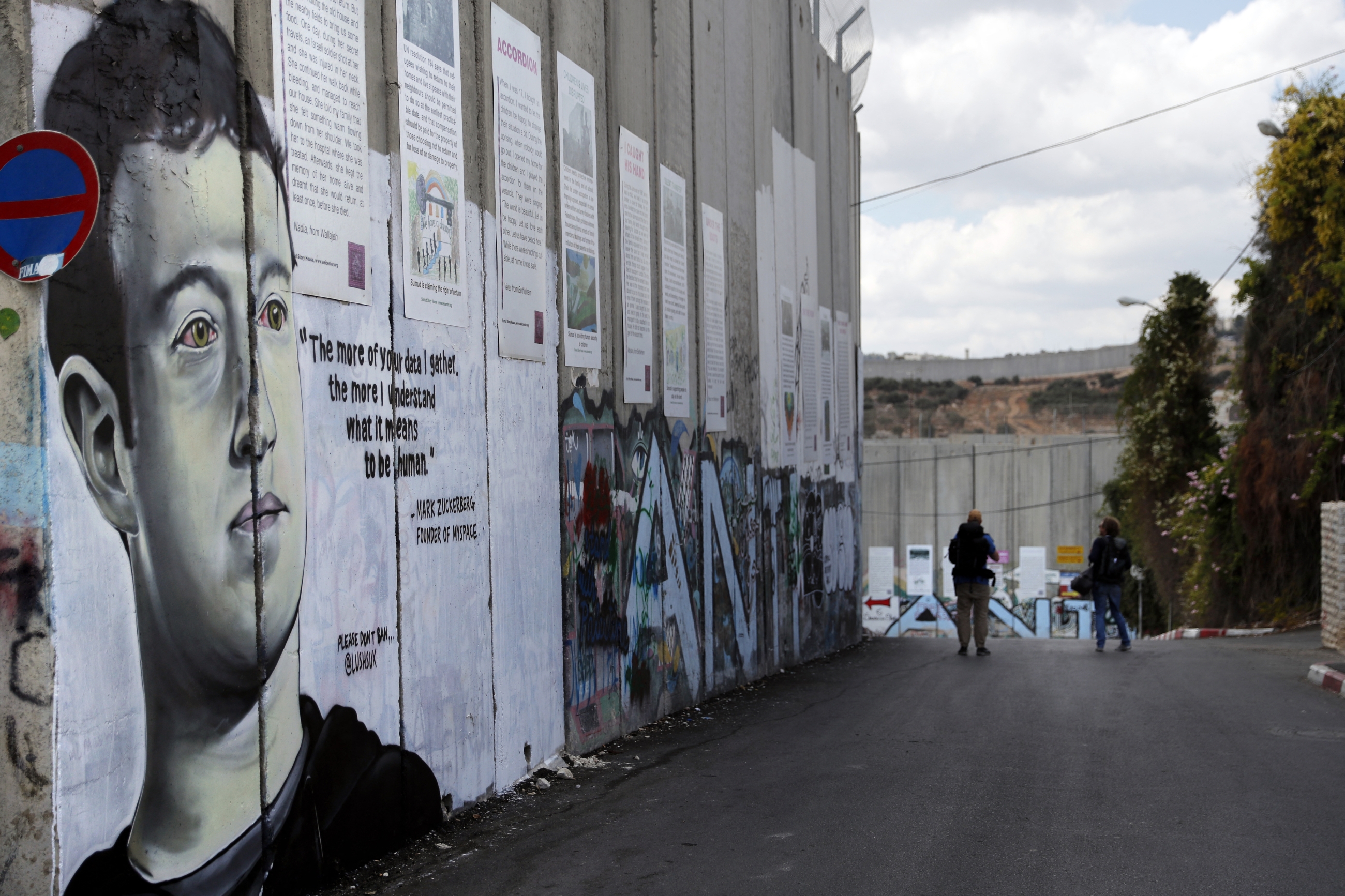
Palestinian activists and journalists have launched a campaign called "Facebook Censors Jerusalem" to raise awareness about Meta’s alleged efforts to censor Palestinian content on its flagship social media platform Facebook, according to a press release on Wednesday by Sada Social, a non-profit focusing on the digital rights of Palestinians.
The campaign comes after a wave of allegations against Meta, which is believed to have restricted or blocked pages that belonged to Palestinian journalists, activists and people on its social media platforms.
The lion’s share of the accusations came in May, after threatened expulsions in Jerusalem's Sheikh Jarrah neighbourhood, the storming by Israeli soldiers of al-Aqsa Mosque, an 11-day offensive in Gaza, and intercommunal violence in Palestinian-majority cities in Israel.
'Facebook didn’t allow us to use important words and vocabulary'
- Eyad Rifai, Sada Social
The campaign has created the "FBCensorsJerusalem" hashtag to support Palestinians who have been restricted on social media platforms. It is also denouncing Meta’s “double standards policy” when it comes to Palestinian and Israeli content.
"While [Meta] is escalating its crackdown on the Palestinian narrative under flimsy pretexts, it does not lift a finger about the Israeli incitement, which calls for the killing and apprehension of Palestinians, especially after the recent incident at the Chain Gate in occupied Jerusalem," read the campaign's statement.
New MEE newsletter: Jerusalem Dispatch
Sign up to get the latest insights and analysis on Israel-Palestine, alongside Turkey Unpacked and other MEE newsletters
Meta has been accused of censoring the experiences of Palestinians and their narrative both on Facebook and Instagram.
The social media platform’s algorithms have been removing posts that contain words like "Hamas" or "martyr" without taking into consideration their contextual meaning, Eyad Rifai from Sada Social, told Middle East Eye.
Rifai referred to a recent example of censorship, in which a Palestinian was killed by an Israeli soldier in Jerusalem. Coverage of the death by Palestinian media or by the personal accounts and pages of Palestinians were restricted on Facebook.
“We are very angry about this because as Palestinians we should have the freedom to use Facebook like all users around the world,” Rifai told MEE.
“Facebook didn’t allow us to use important words and vocabulary, which are important for Palestinian’s liberation movement. How can Palestinians write and publish about their plight if we can’t use such words?”
According to Rifai, since the start of 2021, it has documented more than 600 cases of Palestinian censorship on Facebook and Instagram. The non-profit says that journalists and media accounts were the targets of more than 200 of those cases.
Sada Social criticises Meta for colluding with Israel, its crimes and supporting the occupation by repressing their narrative on social media.
"Facebook algorithms strictly censor any pro-Palestinian content, and do not take into account what's happening on the ground in Palestine," the statement said. "These algorithms have forced many people, political parties, party leaders and others who are highly censored by Facebook to change their names to circumvent the double standards. In the meantime, many Israeli pages are freely and directly calling for the killing of Palestinians and inciting violence against them."
Al Quds, a pan-Arab daily newspaper owned by Palestinian expatriates, was also censored as well as posts from its journalists.
Efforts to investigate bias
Laila Samara, one of the founders of the "Facebook Censors Jerusalem" campaign, said that Facebook has reviewed its policies in the aftermath of similar campaigns that objected to the targeting of Palestinian content.
"Due to the volume of voices from the Palestinian and international public besides brave voices within Facebook, they have reviewed some standards and have lifted the ban of Al-Aqsa hashtag," she told MEE.
"And then the oversight board of Facebook recommended an independent investigation into the accusations of suppressing Palestinian content, so we must maintain this pressure and struggle to modify the unjust algorithms, not just through campaigns, but also through influence and communication with platform policymakers."
In September, the Facebook Oversight Board called for an independent review into alleged bias in the tech giant's moderation of Palestinian and Israeli posts.
The board said that reviewers should not be "associated with either side of the Israeli-Palestinian conflict" and should examine both human and automated content moderation in Arabic and Hebrew.
One major concern among digital advocates is the degree to which Facebook is removing Palestinian content at the request of both the Israeli government, including the justice ministry's cyber unit, and a highly organised network of volunteers who report pro-Palestinian content.
The board took up this question, asking Facebook during its investigation whether the company had received official or unofficial requests from Israel to remove content in April and May.
The company responded that it hadn't received "a valid legal request" from a government authority in the case of one particular post that the board's report focused on. The company "declined to provide the remaining information requested by the board".
On this issue, the board recommended that the independent reviewer should follow up and that Facebook should offer "greater transparency with regard to its treatment of government requests".
Facebook said it welcomed the board's report and would update its comments "after conducting a review of the recommendations provided by the board in addition to their decision".
Middle East Eye delivers independent and unrivalled coverage and analysis of the Middle East, North Africa and beyond. To learn more about republishing this content and the associated fees, please fill out this form. More about MEE can be found here.


